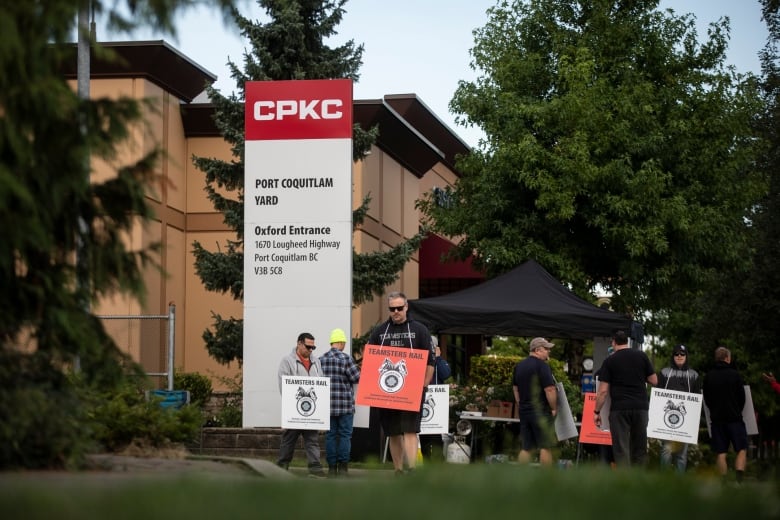The federal labour board has ordered thousands of rail employees back to work after a bitter contract dispute shut down the country’s two major railways.
The decision by the Canada Industrial Relations Board (CIRB) imposes binding arbitration on the parties following a work stoppage at Canadian National Railway (CN) and Canadian Pacific Kansas City (CPKC) that halted freight shipments and snarled commutes across the country since Thursday morning.
The ruling comes after federal Labour Minister Steven MacKinnon directed the arm’s-length tribunal on Thursday afternoon to begin the arbitration process, stating that the parties were at an impasse and Canadian businesses and trade relationships were at stake.
The Teamsters union challenged the government’s move, but the board on Saturday said the tribunal had no authority to decide whether the minister’s directive was valid.
“The board has concluded that, in this case, it has no discretion or ability to refuse to implement, in whole or in part, the minister’s directions or to modify their terms,” chairperson Ginette Brazeau wrote in a pair of rulings.
Brazeau ordered the two companies and the conductors, dispatchers and yard workers concerned to resume operations starting at 12:01 a.m. on Monday.
In addition to ending the lockout and simultaneous strike at CPKC, the ruling voids the 72-hour strike notice issued by the union to CN on Friday morning.
The Teamsters union said it will comply with the board’s decision but plans to appeal the ruling in court, arguing it “sets a dangerous precedent.”
“It signals to corporate Canada that large companies need only stop their operations for a few hours, inflict short-term economic pain and the federal government will step in to break a union,” said Paul Boucher, president of the Teamsters Canada Rail Conference.
“The rights of Canadian workers have been significantly diminished today,” he said in a news release.
Canada’s largest railway said it aims to ramp up shipments as quickly as possible.
“Over the last nine months, CN negotiated in good faith to reach a deal at the table. The company consistently proposed offers with better pay, improved rest, more predictable schedules and a voluntary mobile workforce,” it said in a news…
Click Here to Read the Full Original Article at CBC | Top Stories News…

